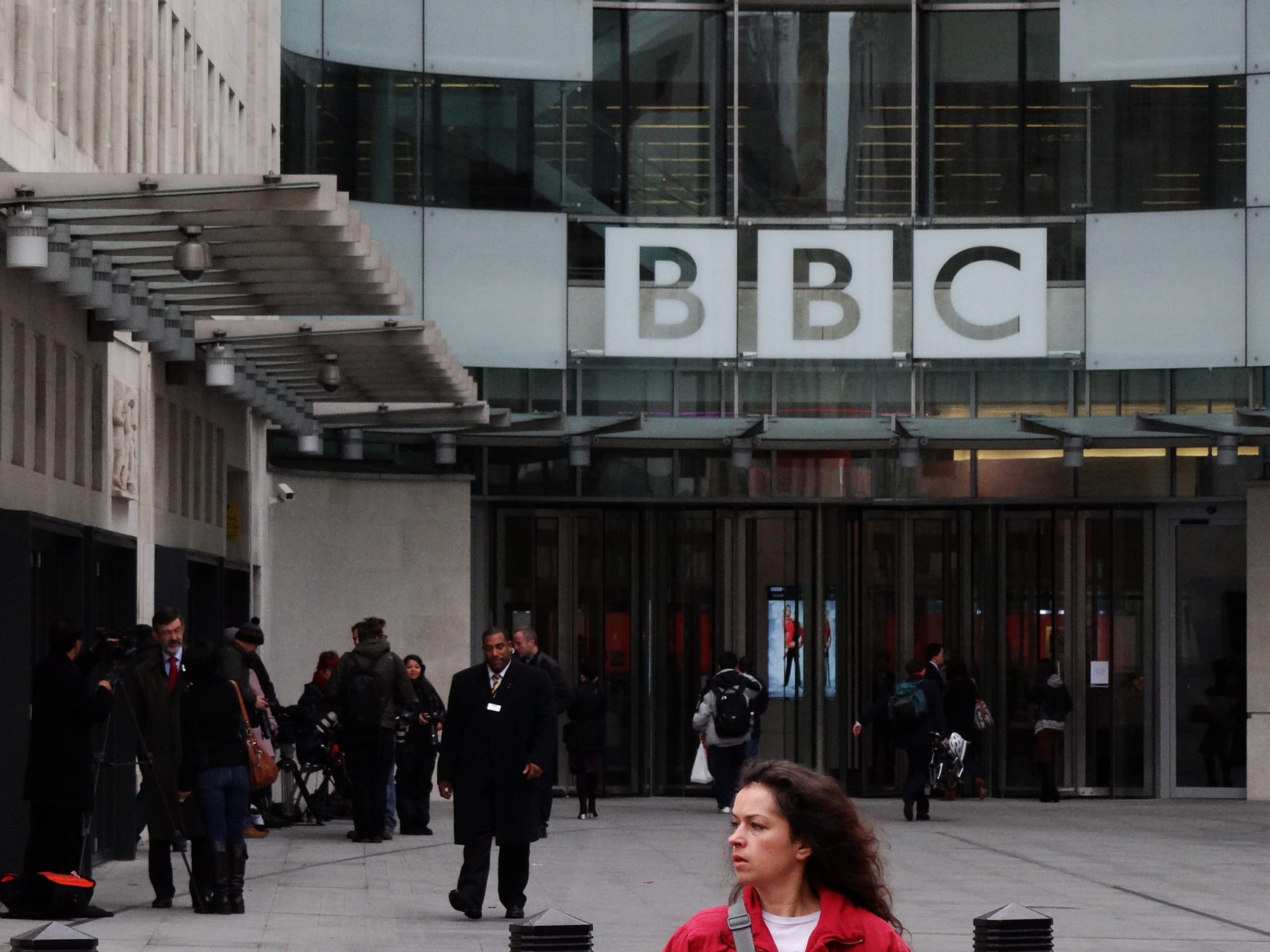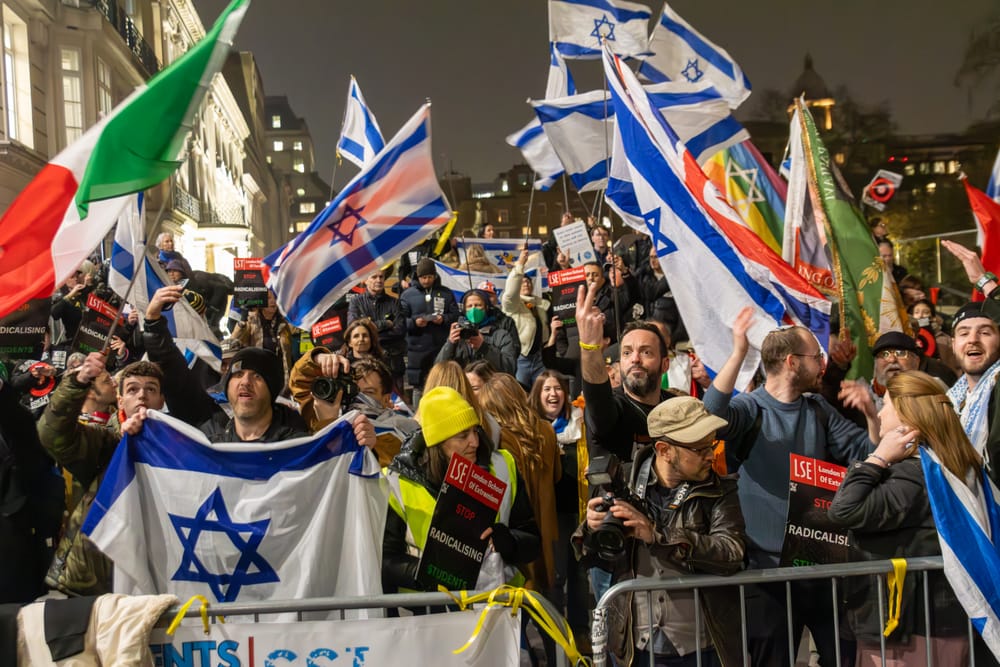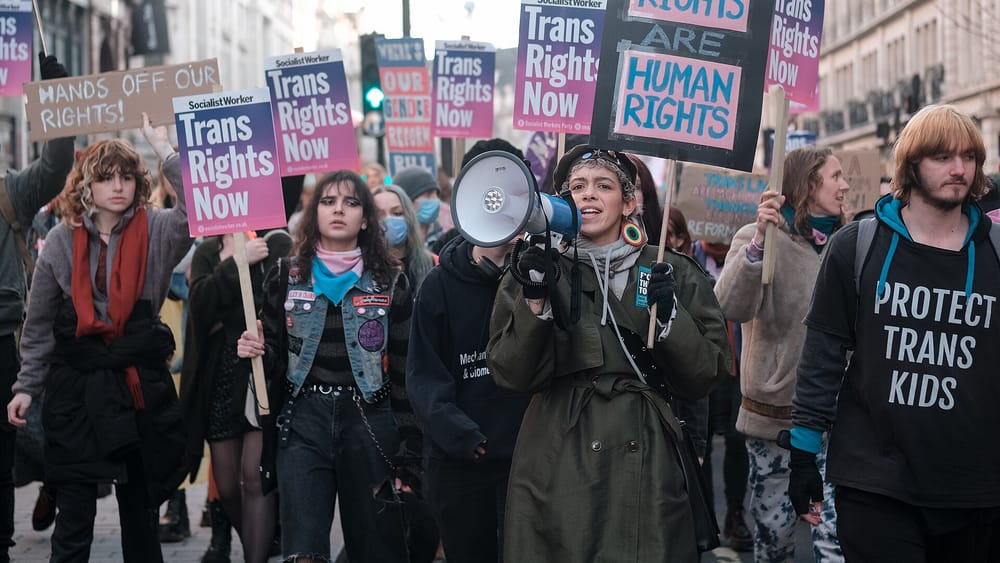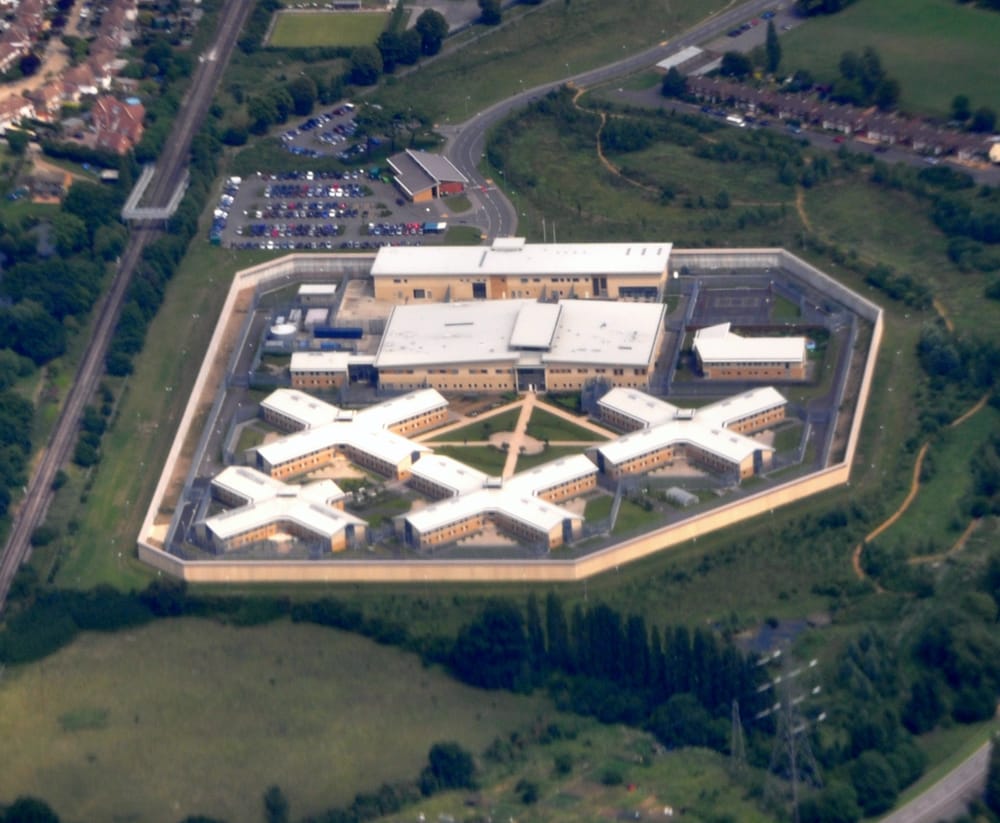How the UK media became complicit in the Gaza genocide
An interview with British journalist Peter Oborne.

This article was originally published in The Nation.
When The Daily Telegraph published a leaked internal dossier alleging systemic left-wing bias at the BBC, few could have predicted the scale of the crisis about to engulf the UK’s flagship public broadcaster.
In the two weeks since the memo appeared, director-general Tim Davie and BBC News CEO Deborah Turness have resigned, and none other than Donald Trump has homed in on the British broadcaster as the latest target in his personal war on the press.
Trump’s involvement stems from the dossier’s claim that an October 2024 BBC documentary misrepresented his January 6, 2021, speech at the Capitol by editing together sentences that were said 50 minutes apart. (The BBC has apologised over the edit, though Trump is still threatening to sue the broadcaster.) But while the documentary was the leading cause behind the Davie and Turness resignations, the dossier also makes a long list of other right-wing and, for the most part, tendentious complaints about areas where the BBC has supposedly embraced left-wing dogma. One of those areas is the genocide in Gaza — BBC coverage of which, the memo’s author, Michael Prescott, insists, has been flagrantly biased against Israel.
Prescott’s assertion — which the right-wing Telegraph has centred in its coverage — would seem shameful and ahistorical to anyone who’s watched the BBC’s journalism on the genocide. That’s because, far from being a mouthpiece for Palestine, the corporation has bent over backwards to placate pro-Israel forces for the last two years.
In just the last two weeks, a new investigative report exposed fresh details about the BBC’s capitulation to pro-Israel pressure in its coverage of Gaza, and an earlier report on the broadcaster’s internal civil war over Gaza received renewed attention. And in another auspiciously timed development, Complicit: Britain’s Role in the Destruction of Gaza, which examines the wider impact of the BBC’s distorted reporting (and which, full disclosure, I fact checked), reached number 10 on the Sunday Times bestseller list.
I spoke to journalist Peter Oborne, the author of Complicit and an associate editor at Middle East Eye, about the right-wing attack on the BBC and the revisionist history of its Gaza coverage, Trump’s malignant influence over the UK, and the British media’s role in the country’s support for genocide.
— Evan Robins
Evan Robins: Let’s start with the BBC. The leaked dossier comes to the conclusion that “Looking at the evidence set out above, it seems very hard for any pro-Palestinian observers to make a compelling case the BBC has a pro-Israel bias.”
In your new book on the complicity of the British media and political class in the Gaza genocide, you write that the BBC’s Gaza journalism has been “a reporting disaster and moral calamity,” but for very different reasons. What do you make of the memo’s inversion of what has happened over the last two years?
Peter Oborne: I knew Michael Prescott when he was a journalist for The Sunday Times, a Rupert Murdoch paper. He rose to be political editor and then left for the world of corporate communications. Eventually he landed at the BBC as some form of adviser. On Gaza, it’s almost like he’s an internal spokesperson for the pro-Israel perspective.
I’m studying the evidence and fact checking what Mr. Prescott has presented. I haven’t completed my fact check yet, but it’s looking to me like much of it is rubbish.
What Prescott doesn’t do is present material concerning the BBC’s pro-Israel misreporting. In my book I list many examples, much of which is omission.
For example, the BBC has never mentioned the Dahiya Doctrine or the Hannibal Directive. It is impossible to understand the indiscriminate assault on civilians and civilian infrastructure without understanding this military doctrine, nor what happened on October 7th without understanding the directive to prevent the taking of hostages, if necessary by killing your own people.
I also cited the extraordinary failure of the BBC to interview Ilan Pappé or Avi Shlaim, two of the greatest historians of the modern Israeli state who are based in Britain.
Then there is the matter of the slaughter of over 200 Palestinian journalists in Gaza. At the time of writing the book, the BBC had noted the murder of only 6% of these Palestinian journalists. In Ukraine, where far fewer journalists have been killed, 60 percent of journalists killed by Russia have been highlighted by the BBC.
You could then move on to the dehumanization of Palestinian life. Israelis killed by Hamas will get 33 times more coverage than Palestinians killed by Israel, with more information focusing on their life, such as their jobs and pictures of them. There are many other examples of this gross imbalance.
I’ve drawn on other sources for this analysis, including the excellent reports by the Centre for Media Monitoring, which is an offshoot of the Muslim Council of Britain. This information has been around for a while, and yet none of it has found its way into Mr Prescott’s anguished memorandum to the BBC setting out purported bias against Israel.
ER: What does the impact of the dossier say about the British media’s relationship to power?
PO: There have been previous instances in which the BBC has actually done much worse things [than the Trump speech edit]. In particular, a Panorama program on Jeremy Corbyn’s Labour Party, which, in my view, had a number of egregious examples of misrepresentation.
When that was brought to the BBC’s attention, they issued a small statement, and there was zero media coverage. If Corbyn is misrepresented, the media, if anything, cheers it on. Whereas, if it’s the US president, it’s front-page news.
This takes us onto the meta story here. I say this with real anguish as a British citizen, that there is a move coming from across the Atlantic to do to the British media, and indeed to British society, what Trump has already set about doing in the US: the creation of a docile, terrified, client media. You see it in this bullying from Trump, these egregious statements from the White House, and the Musk attack on Britain, in which he predicts that our country is heading towards civil war. It’s also other US corporations: for example, it was recently reported that ITV is subject to a takeover bid from Comcast.
Trump’s heavy interventions in Britain are, shamefully, encouraged by quite a lot of British people, including the former prime minister Boris Johnson, and mainstream papers like The Daily Telegraph and the Daily Mail. What they want, of course, is to replace the BBC — which, for all of its many flaws, has been something really rather wonderful — with a version of Fox News. We have to expose what’s going on and do our best to stop it, but I don’t know whether it will be possible.
If [Prime Minister Keir] Starmer had anything about him, he’d be standing up for the BBC. Instead, we’ve had this relative silence from the Labour government. This continues the pattern of Starmer and the UK as an agent of US demands and interests. It’s become kind of humiliating.
ER: I can imagine that an outside observer might look at the general situation in the UK more positively, with a nominally centre-left government in this time of rising fascism and a prime minister who seemingly broke from Trump by recognising a Palestinian state and ending some arms transfers to Israel. But much of its action on Gaza has been very hollow. These have largely been meaningless, purely symbolic measures — particularly the supposed end of the export licenses.
PO: Well, let’s be fair to Starmer. The Tories just went on selling all the arms. The Tories had planned to challenge the ICC arrest warrants against Hamas leaders, [Israeli PM] Netanyahu, and [Israeli Defense Minister] Gallant, and Labour allowed those to go ahead. There was also the suspension of funding to UNRWA on the basis of non-existent Israeli information. The Tories went along with that, and Labour to its great credit, restored that funding. Let’s not be too unkind.
On the other hand, Trump has launched an attack on the International Criminal Court and has sanctioned [United Nations Special Rapporteur on the Occupied Palestinian Territories] Francesca Albanese. It’s quite distressing that Britain is not saying a word in their defence.
Nor have we ever, and this is crucial, accused Israel of committing war crimes. It’s quite extraordinary that we haven’t done that, given the number of war crimes, which are very well-documented, and indeed stated by very authoritative figures inside Israel.
ER: Another point on the scale against Starmer is that he has overseen an extreme criminalisation of dissent, arguably exceeding what Trump has done when it comes to policing Palestine protests in America.
PO: Yes, the atmosphere is frightening, but I’m not sure it’s quite as toxic as say, Columbia University. I agree, though, that the widening of the definition of being a terrorist to include Palestine Action — which, by the way, has been accused of committing criminal acts — is a gross abuse of the term.
ER: Coming back to the BBC crisis for a moment, it’s notable that this dossier was leaked by The Telegraph, where you worked for many years. You take the influence of widely read publications like The Telegraph, the Daily Mail, and The Times very seriously. Can you characterise the ideological position of these publications and their place in British society?
PO: I’m a creation of the old-fashioned media, the old Fleet Street, where I started work 40 years ago with Daily Telegraph. Places like The Times, the Mail, the Express, and then the weeklies like the New Statesman and The Spectator could reflect all points of view.
In the last 15 years we’ve seen a shift, in the case of The Times or The Telegraph, from what you might call the centre right, which would stand up for things like international law, institutions, the universities, and civil society in general, to the populist right, which is hostile to academia, contemptuous of the rule of law, and always attacking judges, for example.
Mediating institutions are under permanent attack. That explains the attack on the BBC, because it was one of those mediating institutions that stood for a set of values which were independent of both the market, in the way that Fox News isn’t, and of the state. It was a common ground that everybody could occupy.
But now these ancient titles have become part of the new, snarling far-right media that is racist, and in particular, Islamophobic. This is a frightening thing.
ER: On the whole, what has been the impact of the British media’s coverage of Gaza over the last two years?
PO: The media has been cheerleading the Israeli assault on Gaza. This is very significant for two reasons. One, in the immediate aftermath of the atrocities on October 7th, the two main parties, the opposition Labour Party and the governing Conservative Party, formed a tacit cross-party alliance, agreeing that whatever Netanyahu did was fine. They were joined in this, interestingly, by Reform, the upstart far-right movement, and then by the violent, thuggish right, led by Tommy Robinson. They all backed the war and opposed a ceasefire.
If you believe what you were taught in journalism school, the media ought to hold power to account, challenge ideas, and discover interesting and terrible stories that may contradict the official narrative. But that didn’t happen. Those who challenged the narrative were pilloried and targeted and chucked out of television studios.
The scale of the Israeli atrocities became very clear extremely quickly. There were more than 5,000 dead by the end of October along with open genocidal talk from the Israeli leadership. Israel destroyed entire families, targeted infrastructure, and its leadership made genocidal statements.
In Britain, people went onto the streets to say this isn’t what we stand for. The media, having sanctified the cross-party arrangement, then became the attack dog against these protesters, calling them antisemitic and hate marchers and following the lead of the politicians.
And that has just gone on. It’s still an enduring media truth that the protesters are dangerous pro-Hamas supporters, and there’s no evidence for it. It’s a media myth. Generally speaking, the marches have been peaceful.
ER: It’s clear that the genocide has continued in the aftermath of the October ceasefire agreement. As we’re speaking, Israel has launched two air strikes east of Khan Younis and the Palestinian death toll continues to rise. Yet world leaders are ignoring this and have shifted their gaze to the question of reconstruction.
The UK, despite its two years of complicity, is desperate to be a high-level participant in these discussions. The Middle East Minister Hamish Falconer, for example, hosted a Gaza reconstruction conference, which brought together country representatives and financiers to “unlock” Gaza’s “human capital”. How do you sense the cross-party alliance, with its media backing, is going to develop in this stage of violence and profiteering?
PO: What you can see already is that the media has not fundamentally changed two years on. How do you know that? Every day, Israel violates the ceasefire in a massive, terrifying way. As we speak, approximately 250 Palestinians have been killed in Gaza since the so-called ceasefire.
Yet the media barely reports these breaches. If it does, it says the ceasefire was “tested,” as it said after Israel killed about a hundred people in one day. You don’t have to be a genius: supposing Hamas had launched an attack on Israeli forces that killed one hundred people, it would’ve been reported as a breach of the ceasefire with headlines everywhere.
Then you can move into British involvement. We had our prime minister go to Sharm El-Sheikh, where he was humiliated by Donald Trump. And we’re desperately trying to support this non-ceasefire and non-peace deal. Meanwhile, we have kept shockingly quiet about the campaign of fascist violence by settler militias in the West Bank. I recently saw the effects of this violence with my own eyes on a visit to the West Bank. Something new is happening under the cover of what’s going on in Gaza. [Far-right Finance Minister] Smotrich has been liberated.
We also haven’t bothered to respond to the ICJ ruling that Israel’s presence in the occupied territory is illegal, let alone what it is doing there. We can’t, because it would be calamitous for our relationships with America and Israel.
We’re part of this. And the British media is simply on the side of Israel, even if it pretends not to be.▼
Author

Evan Robins is an editor at Vashti.
Sign up for The Pickle and New, From Vashti.
Stay up to date with Vashti.



